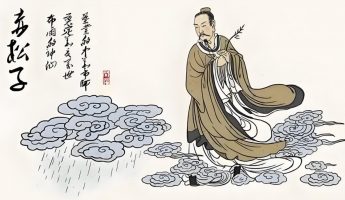Human practical activities, as the core of life activities, exhibit multidimensional and multi-level characteristics, covering multiple aspects such as transforming nature, shaping social structure, enhancing personal cultivation, and enriching the spiritual world. As the subject of practice, human existence and growth are deeply rooted in these practical activities, and the social attributes of practice naturally endow philosophy with the imprint of social reality. Philosophy is not a castle in the air fantasy, but a profound reflection and conceptual mapping of social reality, and a key yardstick for measuring the progress of civilization and the maturity of human minds.
The evolution of philosophy is essentially a profound summary and abstract extraction of natural evolution, social change, human growth, and the trajectory of thinking development. The diversity of these historical processes fundamentally determines the diversity of philosophical thought. Facing the same phenomenon or problem, different perspectives, values, and methodologies can give rise to diverse philosophical understandings and schools of thought, showcasing a rich and varied range of philosophical viewpoints, trends, and forms of expression. This diversity is not only the norm of philosophical development, but also an inexhaustible driving force for its continuous progress, prosperity, and innovation.
What is particularly remarkable is that the diversity of philosophy is fully reflected in its national character. The global philosophical landscape is like a colorful picture, gathering unique philosophical ideas nurtured by different ethnic groups based on their respective regional characteristics, historical accumulation, cultural traditions, and national personalities. Although these philosophical ideas may touch on common themes, they each have their own ingenuity in expression and practical application, showcasing the unique brilliance of their respective national wisdom.
The emphasis on “Sinicization” and “Chinese Characteristics” is a recognition that China, as a unique civilization, faces distinct local issues, challenges, and solutions. China’s Marxist theory, Mao Zedong Thought, and Deng Xiaoping Theory are exemplary examples of combining universal truth with China’s specific realities, showcasing the unique charm of Chinese philosophy with distinctive characteristics. The practice of socialism in China, due to its unique path selection and development model, has become a vivid annotation of “characteristic socialism”.
In addition, the diversity of philosophy is vividly reflected in its contemporaneity. Philosophy is a mirror of the times, reflecting the spiritual outlook and social needs of a specific historical period. With the changes of the times, philosophy constantly absorbs new elements of thought, adjusts its content and form to adapt to and lead the direction of social progress, and plays an irreplaceable social and historical role.
In summary, the diversity of philosophy is the source of its vitality and the fertile ground for the collision and innovation of ideas. It prompts us to constantly explore, reflect, and surpass, to embrace this colorful world with a more open and inclusive attitude, and to promote the sustained prosperity and development of philosophy and even the entire human civilization.



